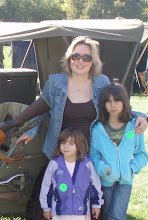The articles for this assignment offered some interesting ideas that I'll unpack briefly here.
One point from Rick Anderson's article "Away from Icebergs" is that libraries need to change the notion of requiring patrons to come to libraries for their information needs. Libraries no longer hold the monopoly on information, so we need to acknowledge the competition, as well as its new digital nature. I largely agree with Anderson on this point. Libraries must strive to be relevant in the digital age and be constantly looking to serve patrons where they are. This is one of the main tenets of Library 2.0 -- to provide useful information service to our patrons wherever they are by making good use of technological resources. That said, I am also a big proponent of the "Third Place" movement, which in some ways is on the exact opposite end of the service spectrum. In brief, it is the idea of making public spaces, such as libraries, a third place after home and work. This concept dovetails nicely into the article by Dr. Wendy Schultz.
Her article "To a Temporary Place in Time" was my favorite since it provided a historical frame of reference for library services all the way from Alexandria (Library 1.0) to the future (Library 4.0). As a former history teacher, this is exactly how categorize, reference and approach information, so her brief article really resonated with me. We are already on the cusp of reality with her description of Library 3D. Schultz describes "digital natives," people who spend as much time in cyberworlds such as Second Life as they do in reality. Libraries are going to have to address this growing population of gamers and avatars perhaps by creating their own avatar presence in these virtual reality environments. This is along the same lines as the article I posted on previously for #7.
But what I found most interesting was her conception of the Neo Library --Library 4.0. Her description of libraries as "mind gyms," "idea labs," "art salons" and "knowledge spas" is highly appealing. She explains the aesthetic experience that will be necessary for libraries to remain relevant in the not too distant future. This is the idea of Third Place coming to fruition and it is this concept in its infancy that first drew me to librarianship -- the sense of belonging to a community, of being an integral part of something larger than self and of fulfilling some sort of societal need. So while library services and the world around us grow increasingly technologically advanced and as libraries strive to keep up with the digital flow of information, I believe that it will ultimately be the human touch added to these advances that saves and preserves our profession.
(And what if Schultz's Neo Library vision comes true -- complete with smooth single malt whisky and fine coffee? All the better! Bring it on!)


No comments:
Post a Comment